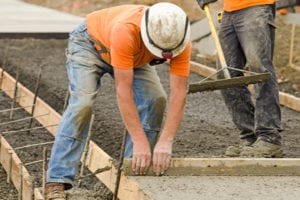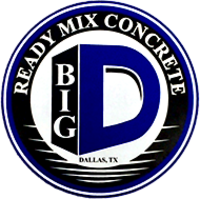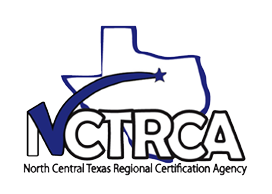What is the Difference Between Concrete and Cement?
What is the Difference Between Concrete and Cement?
There is a big difference between concrete and cement. The article answers this question in terms of the different properties of the two materials and how they are used.
Do you need Concrete or Cement?

Concrete and cement are two common types of building materials. They are both made from crushed rocks, but concrete is made from more than just rocks. Concrete also contains small pieces of metal, plastic, and other materials that help it hold together and become strong.
Cement is just a type of concrete that doesn’t have any metal in it. Cement is made from sand and chemicals, so it doesn’t have as many uses as concrete does. Cement can be used to make concrete by mixing the cement with water.
Concrete has a lot of uses. It can be used to build roads, sidewalks, and buildings. It is also used to make cement blocks that are used in concrete walls and floors (for example the floors of some office buildings).
What is a Compressive Strength Test?
A compressive strength test is a scientific method to measure the strength of concrete or cement. It is typically used in the construction industry to determine the appropriate strength of a concrete or cement mix before it is poured. Compression strength tests can be used to determine if a concrete or cement mix contains too much water or has a large air voids ratio.
When Should You Test it?
When you are in the planning stages of your project, it is important to decide on the type of material you will be using. Concrete and cement are two common materials that construction professionals use. Before you begin any construction project, it is crucial to determine if your chosen material is concrete or cement. There are some slight differences between these two materials that can affect the end result of your project.
Concrete is made up of small, evenly sized pieces of concrete that have been mixed together. When these small pieces are put together, they create a solid structure. Cement is made up of small particles that have been combined with water. This mixture then hardens over time and creates a strong, durable structure.
When it comes to testing your chosen material, there are a few things you need to consider. First, you need to test the durability of the material before you begin construction. Second, you should test the physical properties of the material (such as strength and flexibility). Finally, you should test the Reactivity Index (RI) to make sure it is compatible with other materials in your project.
There are many different factors to consider when testing your chosen material, but overall it is important to do your research.
What are the Substrates of Concrete?
Concrete is made up of several different substrates: gravel, sand, lime, and water. Gravel and sand are the primary materials used in concrete production. Lime is used to make the concrete stronger and more resistant to weathering. Water is used as a binding agent and to provide moisture for the cement to react.
What are the Processes Involved in Making Concrete?
Concrete is a material composed of aggregate, binder, and cement. The aggregate is typically either sand or gravel and the binder is a hydraulic fluid such as Portland cement, lime, or cements made from other elements. The cement is mixed with water and other ingredients to create a slurry which is then forced into molds to form concrete blocks or slabs.
How do you Prepare Cement: By Pouring, Spraying or Sprouting?
If you’re like most homeowners, you probably have mixed feelings about concrete. On the one hand, it’s sturdy, reliable, and affordable. On the other hand, it can be a bit of a pain to work with. In this article, we’ll explore the difference between concrete and cement, and explain how you can prepare each material for use in your home.
Concrete is made of coarse aggregate mixed with water and cement. The mixture is then pressed into a mold and set to harden. Concrete is most commonly poured in rectangular or square forms. It can also be cast in concrete formwork (a framework of wooden beams and columns that supports the concrete as it cures), or poured on-site using a mobile pour system.
Cement is a much finer-grained product than concrete. It’s made of Portland cement, sand, and water. Cement is usually supplied in bulk form and must be handled carefully to prevent clumping. It can be used to make any shape or size of object, including castings and molds. Cement is commonly poured into molds called cores (or blocks). After the cement has hardened, the cores can be cut down to size and the castings removed.Cement is not a liquid. It is actually a solid powder that, when mixed with water, becomes a liquid. When mixed with sand or gravel, it forms a concrete product that has the same physical properties as natural cement (cementite). Although the mixture of cement and aggregate becomes a hard mass within minutes to hours, it doesn’t fully cure for two months or more, depending on local weather conditions. Cement mixtures are typically ready for use one month after being mixed and placed in an environment where they will cure, including indoors under an artificial light source or outdoors on a concrete pad covered with asphalt shingles or crushed stone (for protection against rain).
Call Big D Ready Mix for All of your Concrete Needs!
When it comes to concrete, there are two main types: concrete and cement. Concrete is made up of small pieces of rebar that are held together with cement. Cement is a type of sand and water mixture that hardens when it dries.
One common misconception about concrete is that it is only used for building structures. In fact, concrete can be used for a variety of projects, including sidewalks, driveways, patios, and even ponds!
If you’re looking for a trusted source for all your concrete needs, then you should call Big D Ready Mix. Here at Big D Ready Mix Concrete, we have a team of highly trained and experienced professionals who are ready to assist you with your residential and commercial concrete and construction-related needs for all types of projects.
We can provide you with high-quality mixes that not just cure well but will also give you a solid, long-lasting result.
We have been serving the Dallas area since 2002. Give us a call at 972-737-7976 or contact us online and one of our professionals will guide you through the process.
Looking for the best ready mix concrete supplier in Dallas, TX?
Big D Ready Mix Concrete offers you high-quality concrete products and excellent service!
Sister Companies


Our Certifications

Small Business Enterprise
Women Business Enterprise
Disadvantaged Business Enterprise
About Us
Big D Ready Mix Concrete has been serving clients in the Dallas, TX area since 2002, with over 400 utility mixes, high-strength wall mixes, exposed aggregate mixes, flexural strength mixes, stamp concrete mixes, flowable fill mixes, grout mixes, and trailer pump mixes.
Contact Information
10361 Bickham Rd
Dallas, TX 75220
(972) 737-7976
Email Us
Monday-Saturday 5am to 6pm
Dispatch Hours: Project Dependent